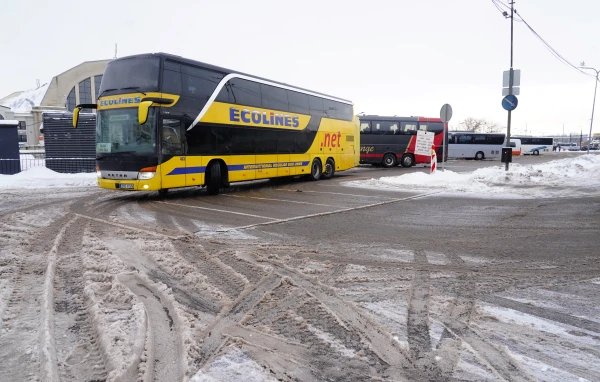
How can the cessation of the last regular routes to neighboring states affect their foreign policy? This is certainly an interesting question — but the National Alliance has long given a clear answer to it. Everything that connects, even theoretically, with Moscow and Minsk must be ritually severed.
“It creates additional security risks”
A group of concerned parliamentarians from the National Alliance addressed Minister of Transport Aitis Švinka (Progressives) through the Saeima Committee on Requests.
They reminded the head of the ministry of what he said at the Cabinet of Ministers meeting on October 7: “Due to the current geopolitical situation and the government's call for residents of Latvia to refrain from traveling to Belarus and Russia, there has been an increase in the flow of irregular, organized bus transport, as well as traffic jams on border roads. This situation creates additional security risks, including threats of illegal migration, espionage, and recruitment of citizens by foreign intelligence services. Therefore, it is necessary to impose restrictions on international irregular passenger transport crossing these state borders.”
Thus, starting from November 1, according to the order prepared by the Ministry of Transport, irregular routes — including tourist ones — were prohibited.
However, as the deputies continue, “despite the constant calls from society and Saeima deputies to cease all forms of cooperation with the aggressor state Russia, which has been waging a full-scale war against Ukraine and its citizens for the fourth year, as well as its ally in this criminal war — Belarus, the current government and your ministry only declaratively express the need to stop cooperation with Russia to support Ukraine, or limit themselves to insignificant decisions, without conducting targeted and broad measures to limit economic and social ties with Russia.”
Here, it seems, the nationalists have sharpened their polemics. It is hardly “insignificant” to impose bans on: air travel, rail communication, sea transport, and the entry of vehicles with Russian license plates. All these measures were taken precisely along the lines of the Ministry of Transport. And, if not by A. Švinka himself, then during his tenure as minister, he only supported and deepened them.
What else should happen?
For its part, the Saeima voted in February in favor of the draft resolution “On the prohibition of public passenger transport to and from Russia and Belarus.” The document, referencing the State Security Service, mentioned the risks of “actions by the intelligence services of the aggressor states against the subjects of Latvia,” including provocations, as well as the transport of sanctioned goods.
By March 17, the Cabinet of Ministers was tasked with “closing border points for the movement of public passenger transport.” However, according to the Road Transport Administration, as of this autumn, there were a total of 13 regular routes — to Moscow, St. Petersburg, Kaliningrad, Smolensk, and Minsk.
“What should actually happen for you as the Minister of Transport to initiate and put on the government agenda a decision to cease passenger traffic of all kinds to and from the aggressor states?” rhetorically ask the national deputies. “Does Russia need to conquer even more land in Ukraine, does it need to be even more brutal, bombing Ukraine? Or perhaps the security services need to open a spy network or smuggling channels that may currently be facilitated by the still existing public transport communication?”
“The decision will be justified...”
In a response letter to the deputies, A. Švinka began by stating that he is also against everything bad:
“We want to emphasize that it is important to consider that Russia and Belarus are implementing elements of hybrid activities and hybrid warfare directed against Latvia and its allies, including measures for the recruitment of human resources. Limiting transport is a preventive measure for state security, corresponding to Latvia's obligations as a member state of the EU and NATO, which is why both the ministry and the minister have begun active actions to contain them.”
Regarding regular routes to neighboring states, the minister has somewhat different data than the deputies: there are 4 options to get to the Russian Federation and 3 to Belarus. However, the Road Transport Administration has already prepared “an assessment of the legal aspects of ceasing the issuance of permits for new routes and not extending the validity of those issued...”.
The Ministry of Transport is also developing a draft decision for the Cabinet of Ministers — “to establish restrictions on the conduct of regular international passenger transport by buses to Russia and Belarus, either by canceling existing route permits or not extending their validity.”
“The decision,” promises the head of the Ministry of Transport, “will be justified by security considerations, including risks of illegal migration, threats of espionage and recruitment, as well as the geopolitical situation, and provides for the possibility of reassessing the decision if security circumstances change, ensuring proportionality in accordance with Article 13 of the Administrative Procedure Law.”
A month’s notice
By the way, Latvia is still fulfilling long-standing agreements on transport with Russia (from January 13, 1994) and Belarus (from February 1, 1995). Although they “do not prohibit establishing temporary restrictions on crossing the border for security reasons.” The agreement on international irregular passenger transport by buses (INTERBUS), signed in Brussels on September 28, 2000, also “does not impose an obligation to ensure crossing the border through all border points.”
The ministry also explains that to comply with legality, it must notify “private legal entities,” i.e., carriers, at least 30 days in advance about the termination of permits. In any case, “the Road Transport Administration is ready to implement these restrictions...”
“At the same time, it should be taken into account that there is a risk from the carriers that compensation will be demanded,” points out A. Švinka. “Thus, this situation may cause financial losses for the state. For a long-term solution, the Ministry of Transport is currently assessing the need to amend the Law on Road Transport or the Cabinet of Ministers Regulation No. 37, including a security risk assessment as a basis for limiting or ceasing the issuance of permits.”
Lithuania and Estonia are in no hurry to impose bans
Interestingly, besides Russia and Belarus, “other involved states, such as the Republic of Moldova,” are also mentioned.
“Moreover, according to information received from the competent authorities of Estonia and Lithuania, there are currently 29 regular international passenger routes by bus to Russia and Belarus being serviced in Lithuania. There are no direct regular international passenger routes from Estonia to Belarus, but connecting routes are used. For communication with Russia from Estonia, there are a significant number of routes to St. Petersburg.
In this regard, a unified and coordinated approach of the Baltic states and the EU to restrictions on passenger transport to Russia and Belarus to strengthen regional security and prevent the transfer of risks between states is important for the restrictions to have a significant impact.”
In general, for now, tickets can still be purchased until the end of this year. But — we are keeping an eye on the news!



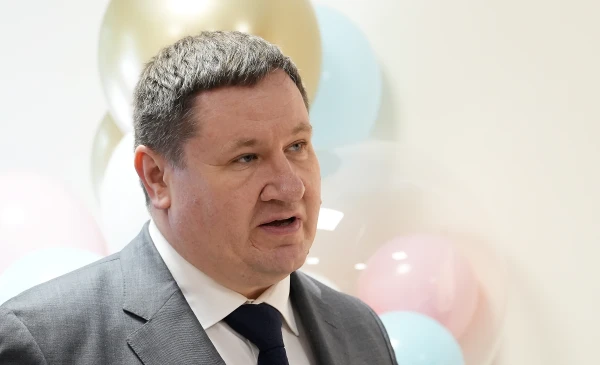
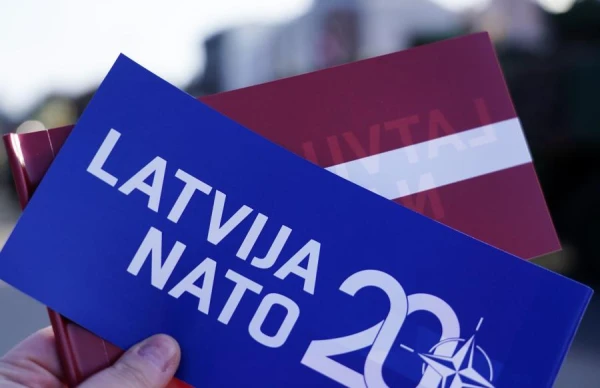

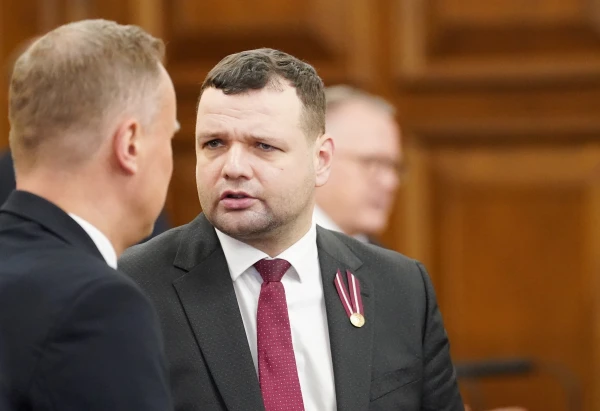
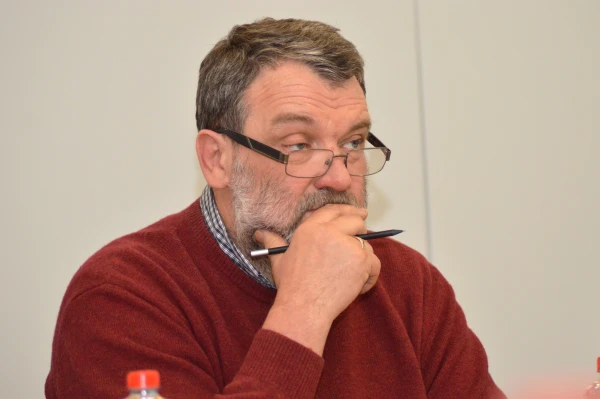
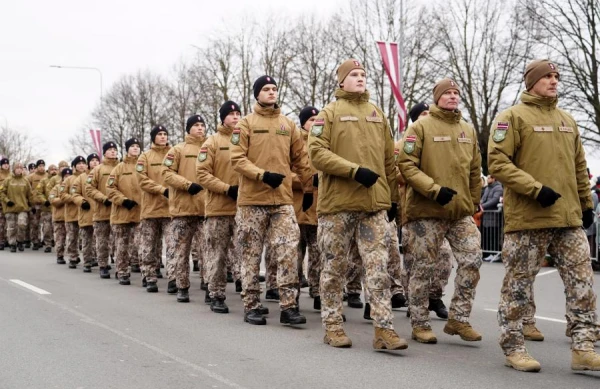

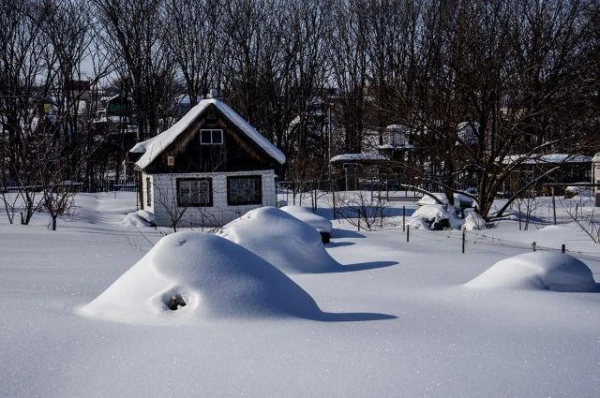




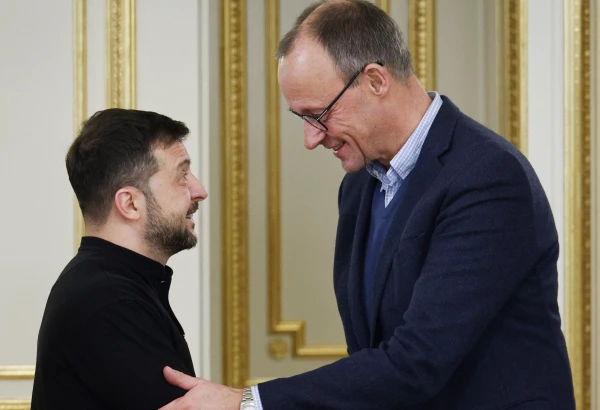
Leave a comment